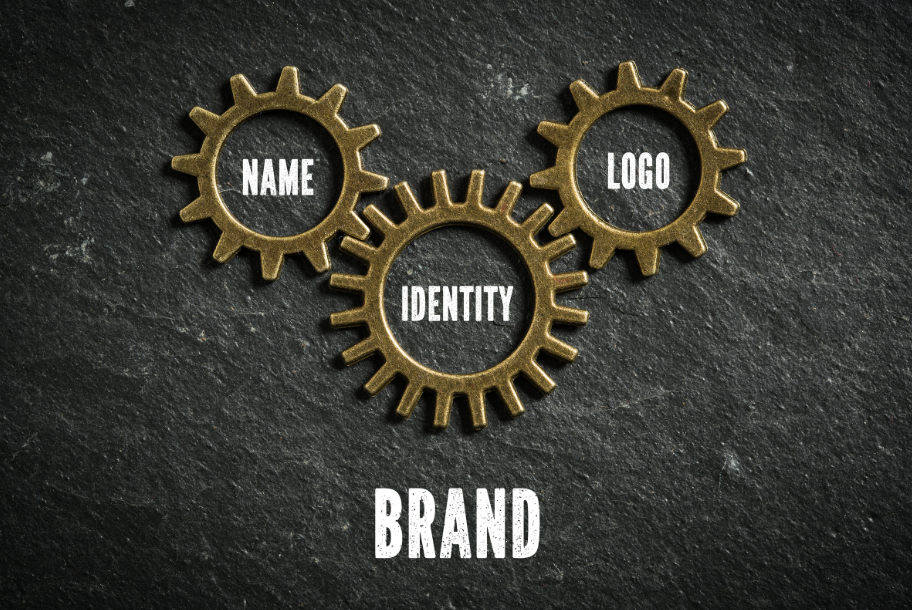Elevate Your Brand's Identity: Uncovering the Realm of Creative Branding
Welcome to a World of Distinctive Identity: Where Your Brand Flourishes In an interconnected and ever-evolving marketplace, your brand's identity is its most valuable asset. It's more than just a logo or a color scheme; it's the essence that sets you apart and captivates your audience. At our branding studio, we believe in the power of crafting unique narratives that resonate, visuals that leave a lasting impression, and strategies that propel your brand forward. Join us on a journey of creative exploration as we delve into the art and science of building brands that thrive in the digital age.
The Vital Role of Brands: Unveiling Their Significance
Brands hold immense significance in the modern business landscape, playing a pivotal role in shaping perceptions, building trust, and fostering lasting connections with consumers. Here’s why brands are crucial:
Identity and Differentiation: Brands establish a distinct identity that sets a business apart from competitors. They encapsulate the values, mission, and unique offerings that make a business memorable and recognizable.
Trust and Credibility: A well-crafted brand communicates professionalism, consistency, and reliability. Consumers are more likely to trust a brand they recognize and perceive as credible.
Emotional Connection: Successful brands evoke emotions and forge connections with consumers. A strong emotional bond leads to customer loyalty and advocacy.
Perception of Value: Brands influence how consumers perceive a product or service. A strong brand can justify premium pricing and convey a sense of quality and value.
Customer Loyalty: Brands that resonate with consumers foster loyalty. Loyal customers not only make repeat purchases but also become brand advocates, promoting the brand to others.
Consistency: Brands provide a framework for consistency in messaging, design, and customer experience. This consistency reinforces the brand’s image and message.
Recognition: A well-established brand is instantly recognizable, making it easier for customers to locate and choose products or services.
Market Positioning: Brands help position businesses within the market. A brand’s unique attributes define its target audience and where it stands relative to competitors.
Ease of Decision-Making: Consumers often choose brands they recognize, as familiarity reduces the perceived risk of making a wrong choice.
Long-Term Business Strategy: Brands offer a foundation for strategic decision-making, guiding product development, marketing campaigns, and expansion efforts.
Storytelling: Brands enable businesses to tell their story, building connections with customers through narratives that resonate with shared values and experiences.
Flexibility and Adaptability: Brands can evolve to reflect changing trends, markets, and consumer preferences, ensuring relevancy over time.
Competitive Advantage: A strong brand gives businesses a competitive edge, helping them withstand market fluctuations and stand out in crowded industries.
Financial Value: Successful brands have intrinsic financial value. They can be assets that drive business valuation and potential for partnerships or acquisitions.
Employee Engagement: Brands with a compelling mission and values attract and retain employees who align with the company culture.
In essence, brands are the heart and soul of a business. They communicate the essence of what a business represents, fostering trust, loyalty, and engagement while propelling growth and success in an ever-evolving marketplace.
Key Ingredients for Crafting Exceptional Branding: Elevating Your Identity
Crafting the best branding involves a meticulous combination of strategic elements that collectively create a distinct and impactful identity. Here are key factors that contribute to exceptional branding:
Clear Identity: Successful branding articulates your brand’s mission, values, and personality in a concise and memorable manner.
Memorable Visuals: A well-designed logo, color palette, typography, and imagery form the visual foundation of your brand, leaving a lasting impression.
Consistency: Maintaining consistency across all touchpoints, from design to messaging, fosters a cohesive and recognizable brand identity.
Target Audience Understanding: In-depth knowledge of your target audience enables you to tailor branding that resonates with their preferences, needs, and aspirations.
Unique Proposition: A distinct value proposition sets your brand apart from competitors, communicating what makes your offering exceptional.
Storytelling: Compelling narratives that share your brand’s journey, values, and impact resonate emotionally with audiences, forging lasting connections.
Authenticity: Brands built on genuine values and principles create trust and foster meaningful relationships with consumers.
Flexibility: Adaptable branding that can evolve with changing trends while maintaining core elements ensures long-term relevance.
Emotionally Resonant: Effective branding evokes emotions that resonate with your audience, creating memorable experiences.
Simplicity: Striking the balance between creativity and simplicity ensures your branding is easy to understand and recall.
Alignment with Culture: A brand that aligns with your company’s culture and beliefs fosters employee engagement and brand advocacy.
Competitive Analysis: Understanding how your brand compares to competitors helps identify opportunities for differentiation and improvement.
Versatility: Effective branding works seamlessly across various mediums, from digital platforms to physical products and packaging.
Listening to Feedback: Gathering and acting on customer feedback helps refine your branding for better alignment with audience preferences.
Longevity: Enduring branding remains relevant and recognizable over time, maintaining its impact amid changing landscapes.
Adaptable Strategy: A well-defined branding strategy can pivot to address changing market demands while maintaining core brand values.
Integration: Branding should seamlessly integrate into all aspects of your business, from marketing to customer service.
Measurement and Optimization: Regularly assessing the effectiveness of your branding and optimizing based on insights ensures continued growth.
Cultural Sensitivity: Being mindful of cultural nuances ensures your branding resonates positively across diverse audiences.
Innovation: Evolving branding through innovative campaigns and initiatives keeps your brand fresh and engaging.
Ultimately, the best branding captures the essence of your business, effectively communicates your value, and cultivates lasting relationships with your audience.







Full Websites
The importance of websites: Crafting your digital identity
In today’s dynamic and interconnected world, having a compelling online presence is no longer just an option—it’s a necessity.
Landing Pages
Unlocking the power of Landing Pages: Shaping your digital footprint
A thoughtfully designed landing page acts as your virtual showcase, your digital introduction, and your access point to the global audience.
SEO
Channeling the potential of SEO: Sculpting your online presence
A meticulously crafted SEO-focused page serves as your virtual stage, your online debut, and your gateway to a global audience.
E-Commerce
Unleashing eCommerce potential: sculpting your digital store
An e-commerce platform transforms into your digital storefront, enabling your products to reach a global audience even in your downtime.
Maintenance
Nurturing Your Online Presence: The Science of Website Maintenance
It’s crucial to ensure your website remains up-to-date, secure, and optimized for a seamless user experience
